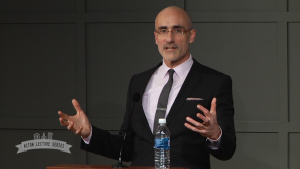


This story makes me think of an old joke. Stafford, TX has a population of 19,227 people and 51 churches. The city council is making noise about preventing any more churches from opening up because, as tax-exempt organizations, they are threatening the viability of the local government.
My initial reaction: In one sense this is nothing new. Ever since the days of the Holy Roman Empire, church estates have been free from the taxes of civil government, and as monastic and ecclesiastical property holdings grew larger, the civil magistrate grew more and more covetous…after all, there is no tax exemption from the tithe.
I do, by the way, support the idea that the church should be free from paying taxes to the civil government, and not simply because the government deems churches to be of positive social value. The Church and the State are different institutions with different orders of authority. You might say that the State has no authority or right to tax the Church.
And this might even true even if churches want to make political statements (although I have my own view about the prudence of doing so). In this sense, churches perhaps aren’t like other nonprofits, and so perhaps these IRS warnings are based on a misplaced view of the authority civil government.
But I digress. Living in West Michigan, which I believe has to have one of the largest proportions of church space per capita in the country, this hits home. You’ve probably all heard it in some form or another:
A man was shipwrecked and he was able to find his way to an island. He lived there alone for 10 years.
Finally a ship came to his rescue. His rescuers saw three huts that he had constructed and they were puzzled by that. They asked him if he were alone on the island and he answered that he was.
Then, “What was this hut used for?” they asked.
“I live there.” he replied.
“What was the second hut used for?” they asked.
“Oh, that’s where I go to church.” was his answer.
“And the third?” they queried.
“Hmmph! That’s where I used to go to church.”
HT: WorldMagBlog









